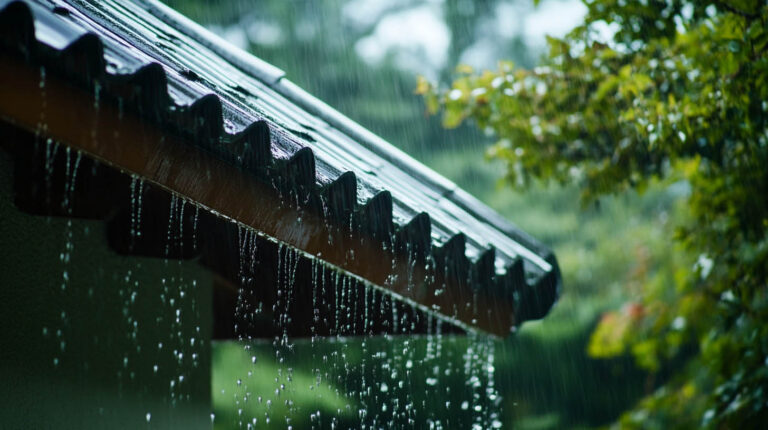
Blog
Steps to Get Your Jacksonville Roof Ready for the Summer Season
With Jacksonville’s intense summer weather, from sweltering heat to sudden hailstorms, proactive roof maintenance is essential. Preparing your roof for summer ensures it remains resilient and minimizes repair costs. Avenue Roofing, a leading roofing provider in Jacksonville, offers guidance on getting your roof summer-ready. Avenue Roofing recommends a comprehensive approach to ensure your roof can withstand the season’s challenges.

1. Inspect for Winter Damage
Winter in Jacksonville can leave roofs vulnerable, with potential issues like loose shingles, cracked seals, and debris accumulation. Start with a thorough inspection to assess any winter damage that could worsen under summer conditions. Key areas to inspect include:
- Loose or Missing Shingles: Check for any dislodged or damaged shingles that could lead to leaks.
- Damaged Flashing and Seals: Cracks in flashing allow water infiltration, which can lead to serious damage.
- Clogged Gutters: Remove any winter debris to prevent blockages and ensure proper drainage.
Pro Tip:
Did You Know? Loose shingles are a common cause of leaks in Jacksonville’s variable weather. Regular inspections help prevent costly damage from unaddressed issues.
2. Clean Your Gutters and Downspouts
Gutters and downspouts play a crucial role in diverting water away from the roof and foundation. Clogged gutters can cause water to back up, leading to potential water damage. Clear out any debris that has accumulated over the colder months to ensure free-flowing drainage.
- Improves Water Flow: Clean gutters reduce the risk of water damage.
- Prevents Mold Growth: Proper drainage minimizes mold buildup.
3. Trim Overhanging Tree Branches
Overhanging branches are a common source of roof damage. During storms or high winds, branches can scratch shingles, while fallen leaves clog gutters. Trimming nearby trees reduces these risks and allows for better air circulation, helping the roof stay in top shape throughout summer.
Benefits of Regular Tree Trimming
- Minimizes Roof Damage: Reduces scratching and impact risks.
- Prevents Clogged Gutters: Fewer leaves mean less gutter cleaning.
4. Check for Mold and Algae
Jacksonville’s summer heat, combined with rain, creates ideal conditions for mold and algae. Look for dark streaks or green patches on the roof’s surface and address them promptly, as mold can lead to structural issues if left untreated. Use a safe cleaning solution or contact a professional for removal if the growth is extensive.
- Prevents Structural Damage: Regular cleaning prevents the spread of mold.
- Maintains Curb Appeal: Removing algae helps keep your roof looking new.
5. Ensure Proper Attic Ventilation
Attic ventilation is essential for reducing heat buildup during summer. Poor ventilation can damage shingles and increase cooling costs. Make sure your attic has sufficient airflow by checking vents and exhaust systems. Proper ventilation keeps the roof cooler and prolongs its life.
- Prevents Heat Damage: Ventilation reduces strain on shingles.
- Reduces Energy Costs: Proper airflow lowers cooling expenses.
6. Schedule a Professional Roof Inspection
While DIY inspections are helpful, a professional inspection identifies hidden issues that may go unnoticed. Avenue Roofing provides comprehensive assessments to ensure that your roof is prepared for Jacksonville’s summer conditions. Our team evaluates structural integrity, repairs any damage, and offers maintenance tips tailored to your roof’s needs.
- Early Problem Detection: Identify and address issues before they worsen.
- Expert Recommendations: Professionals provide solutions for optimal roof performance.
Conclusion: A Strong Start to a Safe Summer
Preparing your roof for summer is essential for protecting your home from Jacksonville’s weather. By following these steps, you can keep your roof resilient against summer’s challenges. Avenue Roofing is here to help with professional inspections, repairs, and advice, ensuring your home stays safe and comfortable all season.
FAQs
Q1: How often should I inspect my roof for damage?
A1: Ideally, inspect your roof at the start of each season to identify any seasonal damage.
Q2: Can I clean my gutters myself?
A2: Yes, but be sure to use proper safety equipment or consider hiring a professional to avoid risks.
Q3: What is the importance of attic ventilation?
A3: Good ventilation reduces heat buildup, extending the life of shingles and lowering energy costs.
Q4: How do I prevent mold on my roof?
A4: Regularly inspect for dark patches and clean them using a safe, roof-friendly solution.
Q5: Should I hire a professional for roof inspections?
A5: A professional inspection can catch hidden issues and provide expert recommendations, which can save money on future repairs.
To learn more about why modified bitumen roofing is a smart investment, click here.



